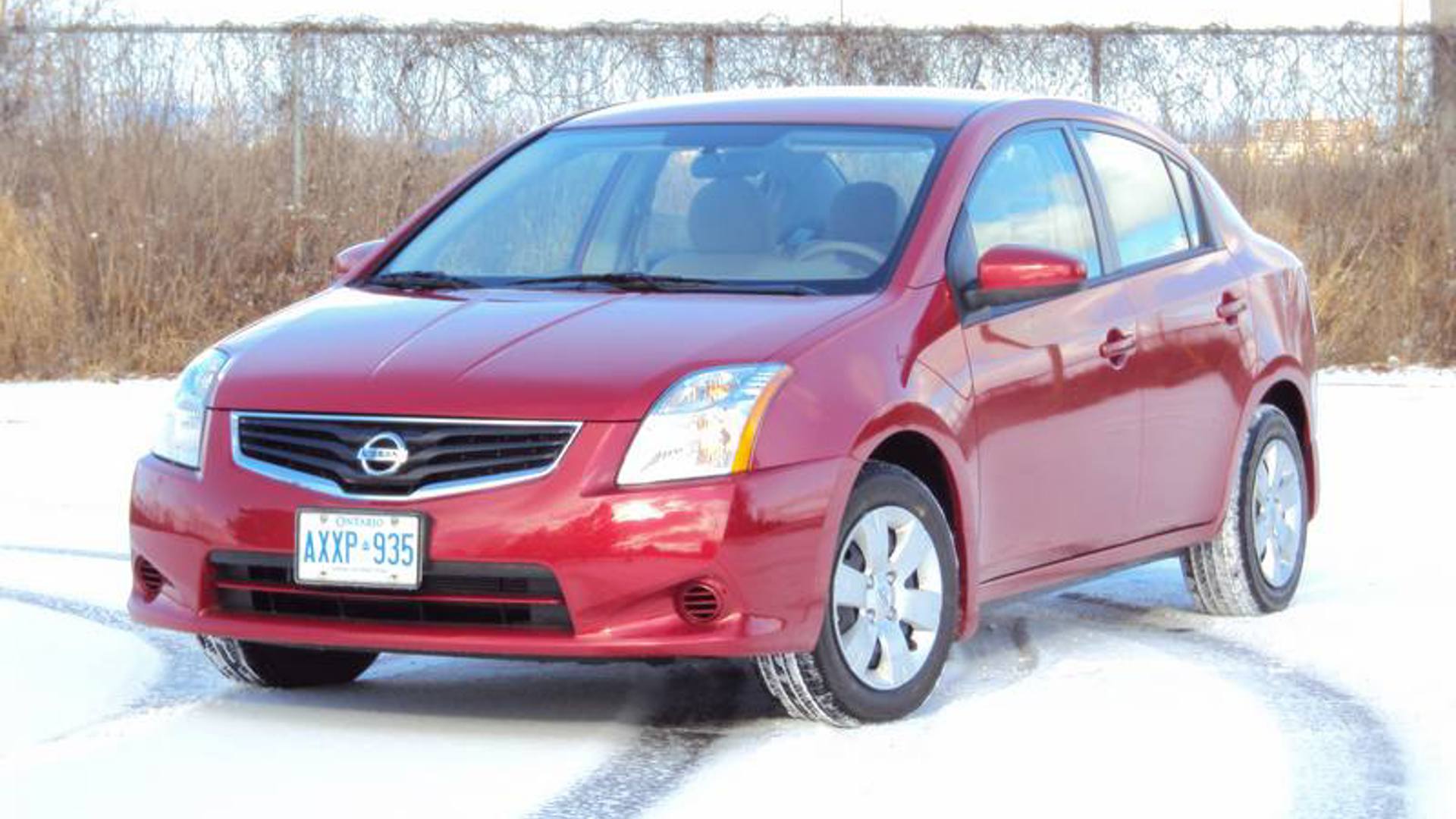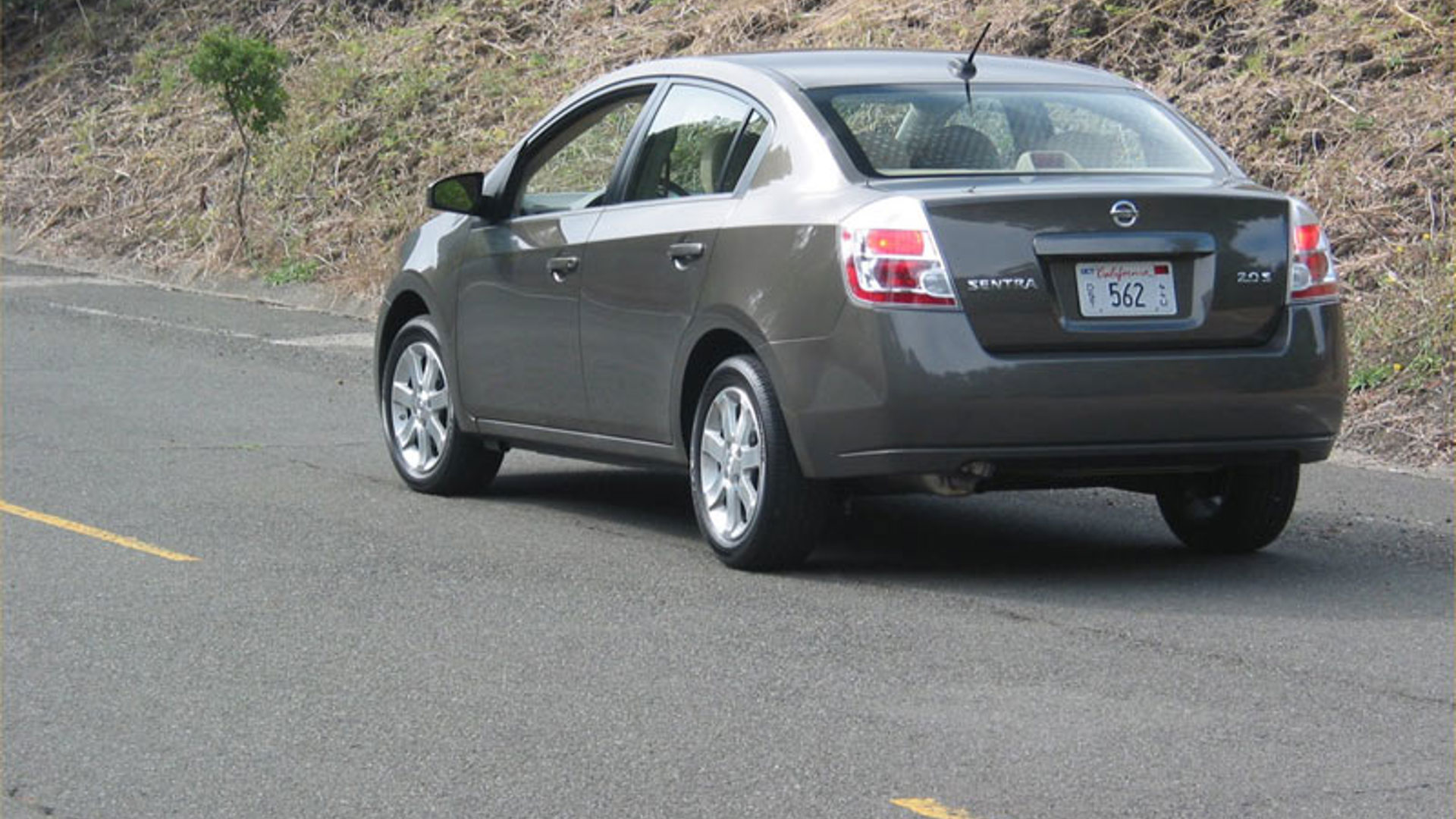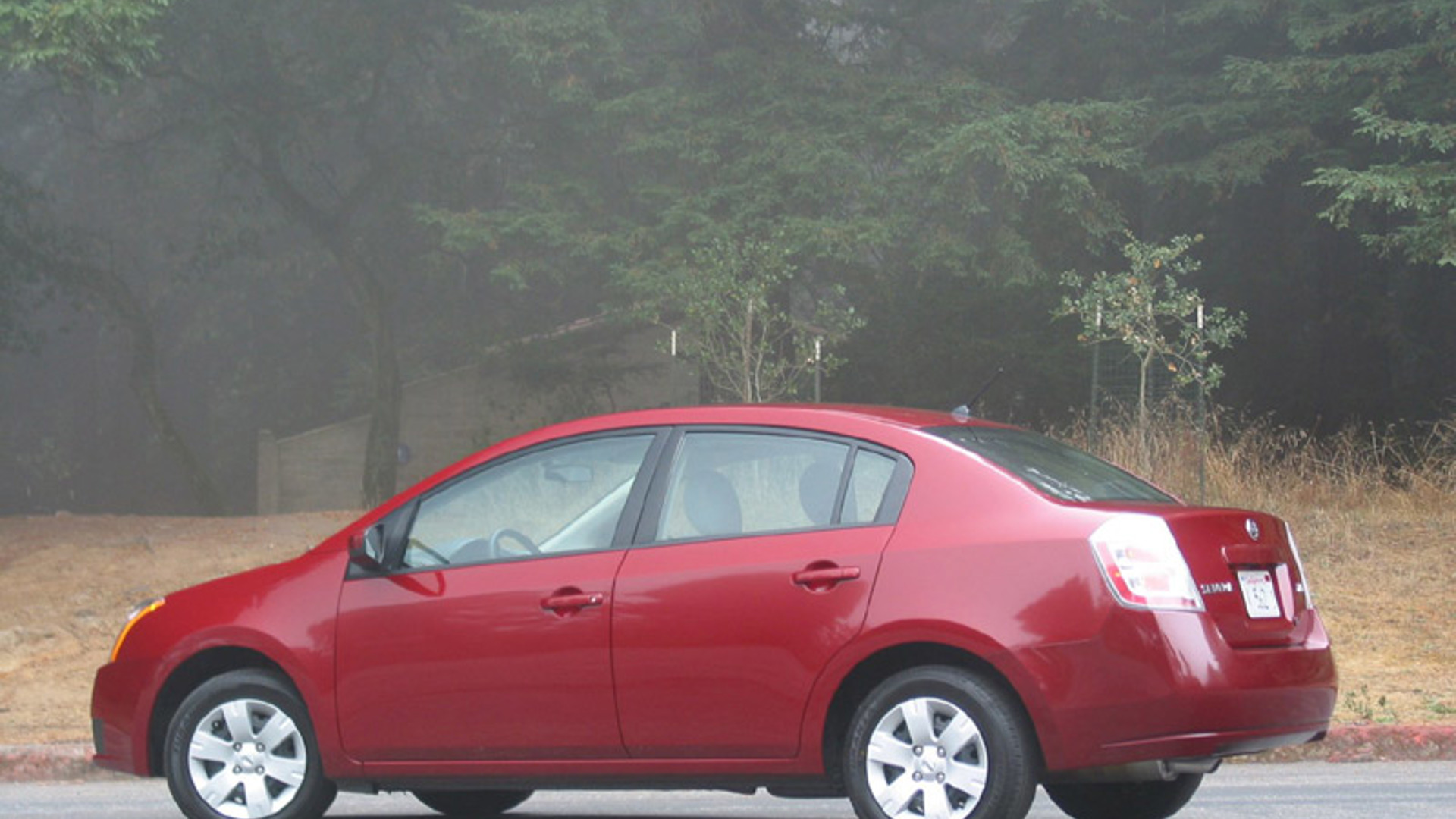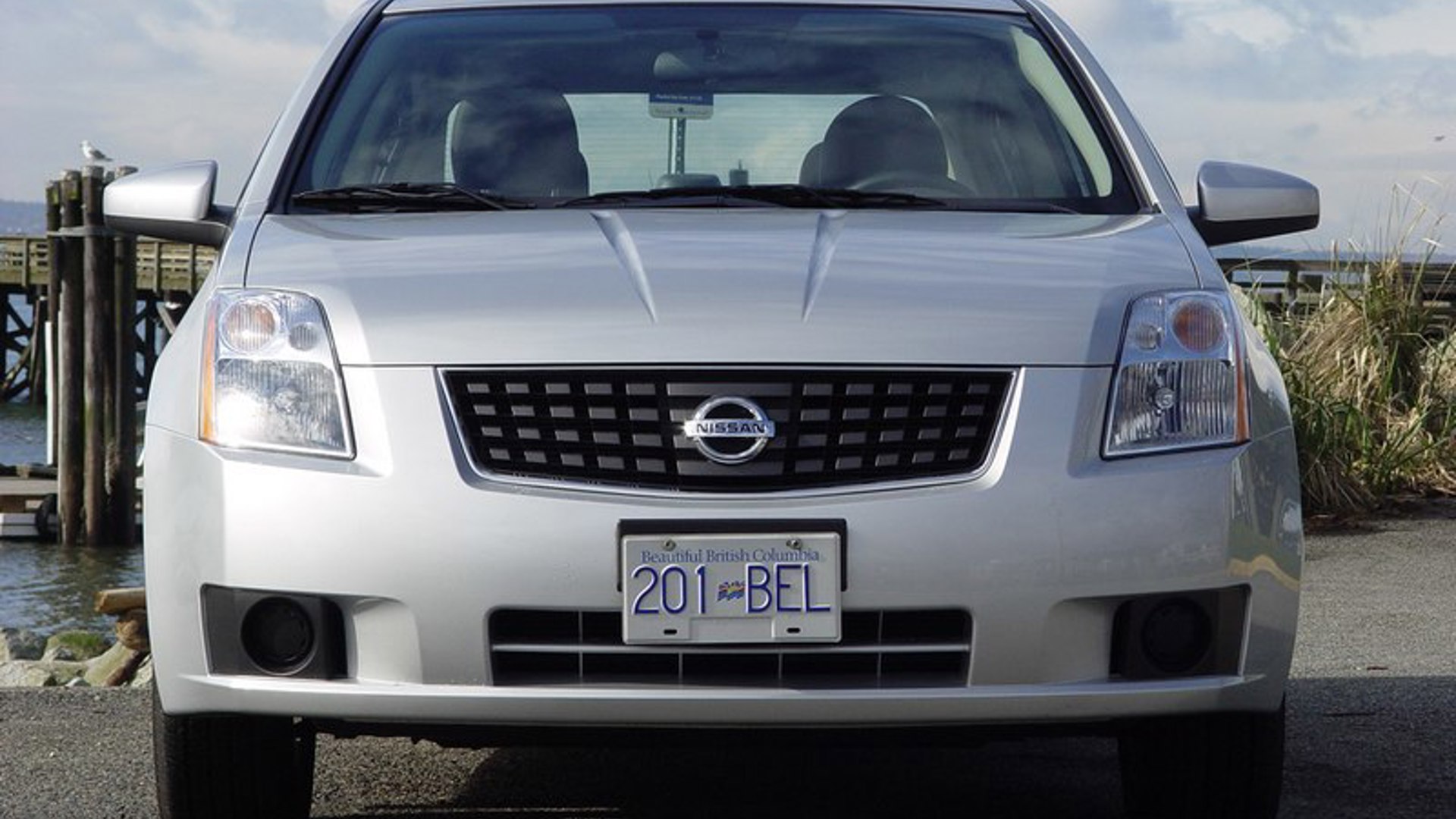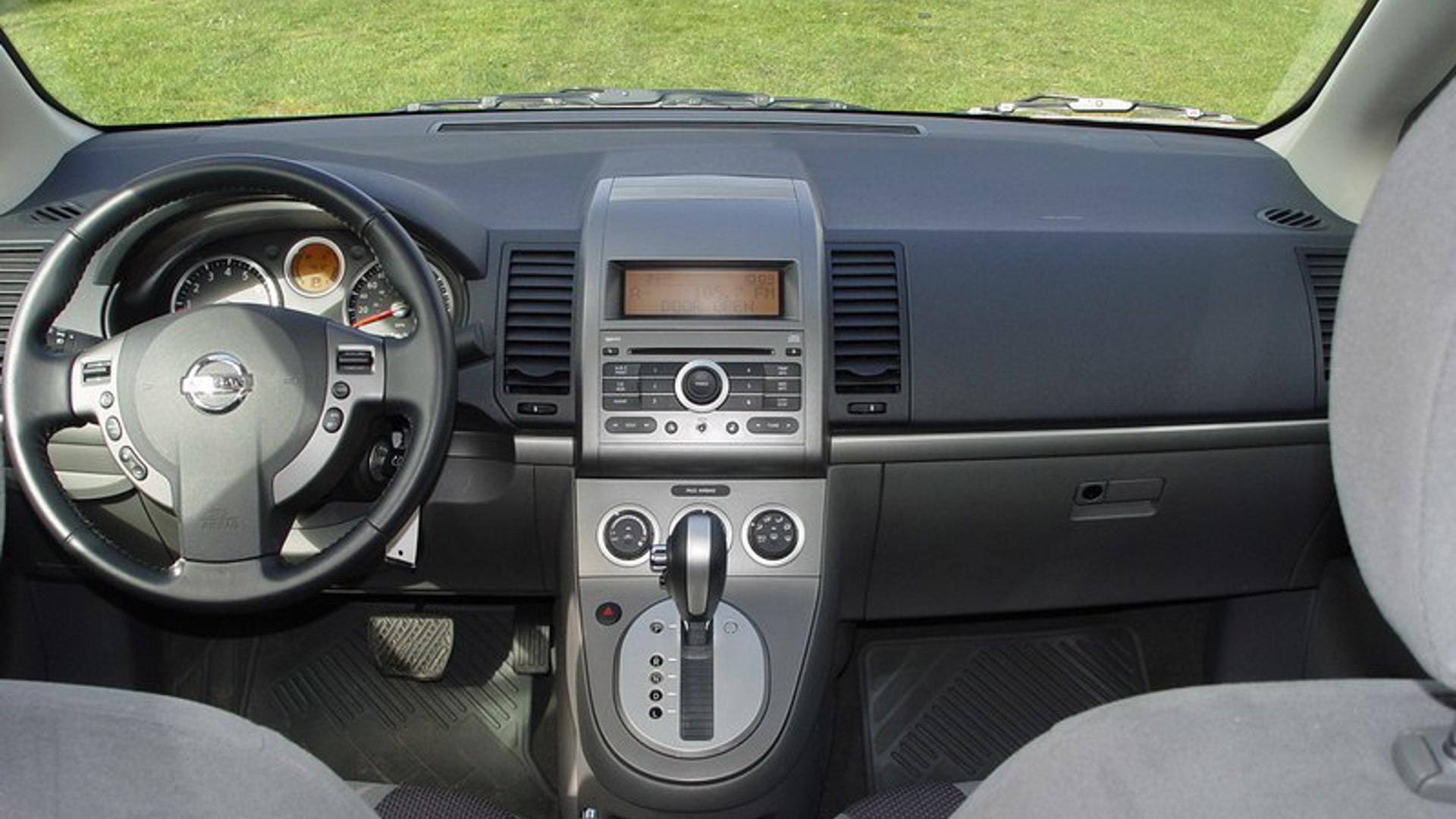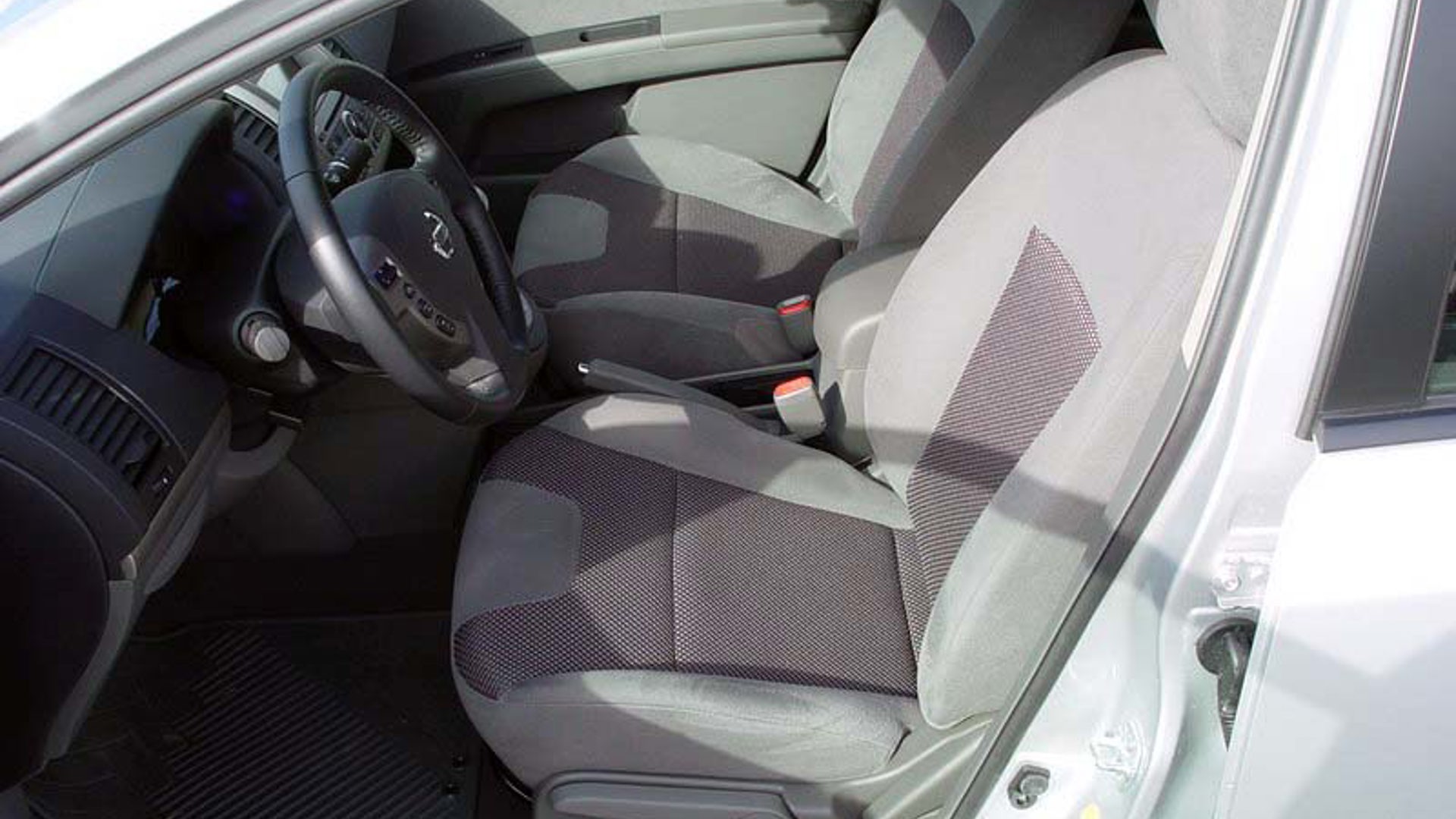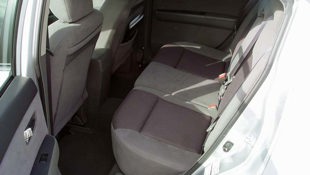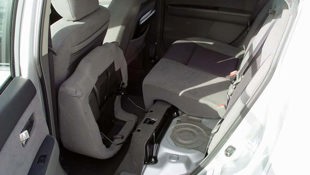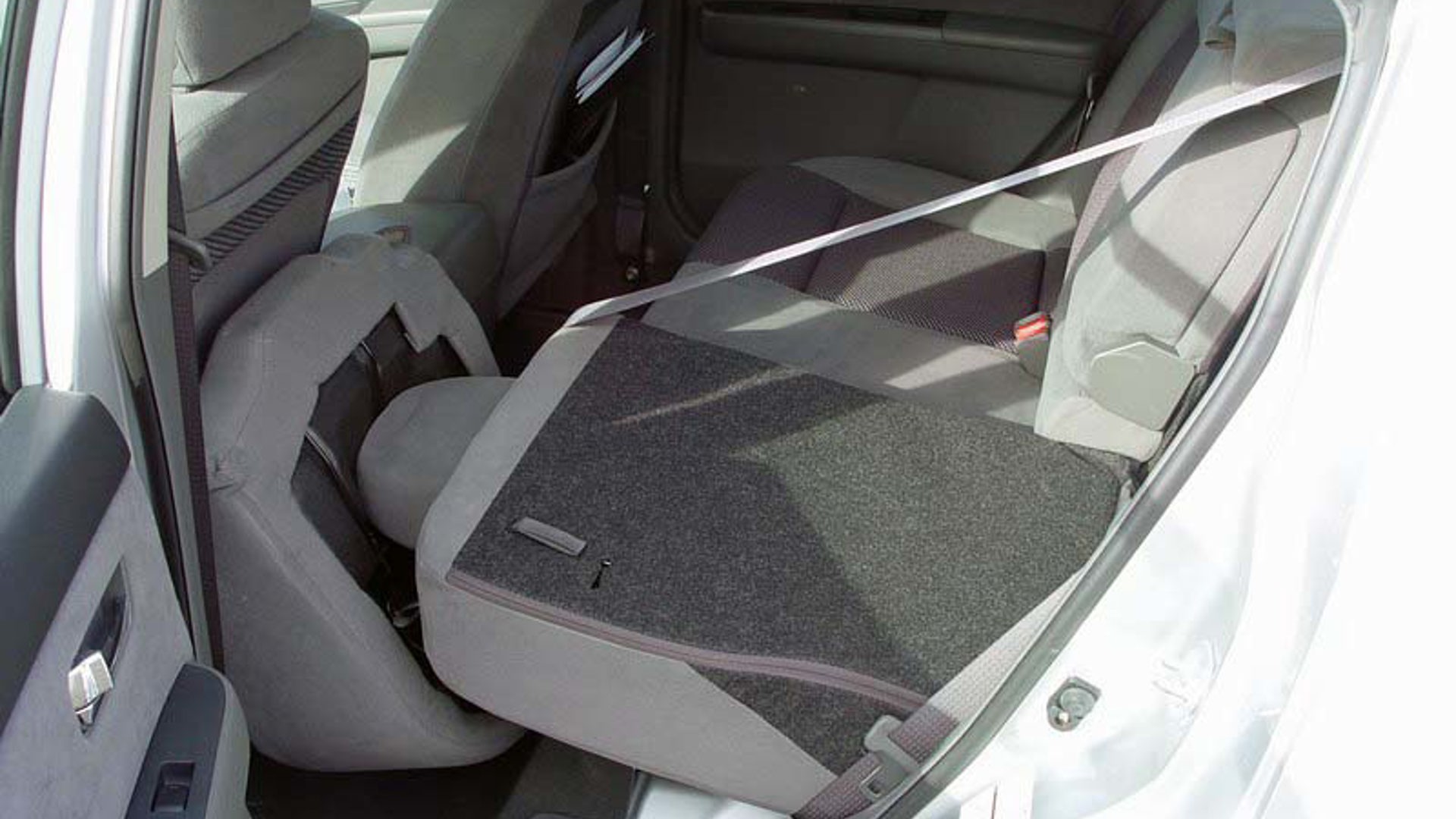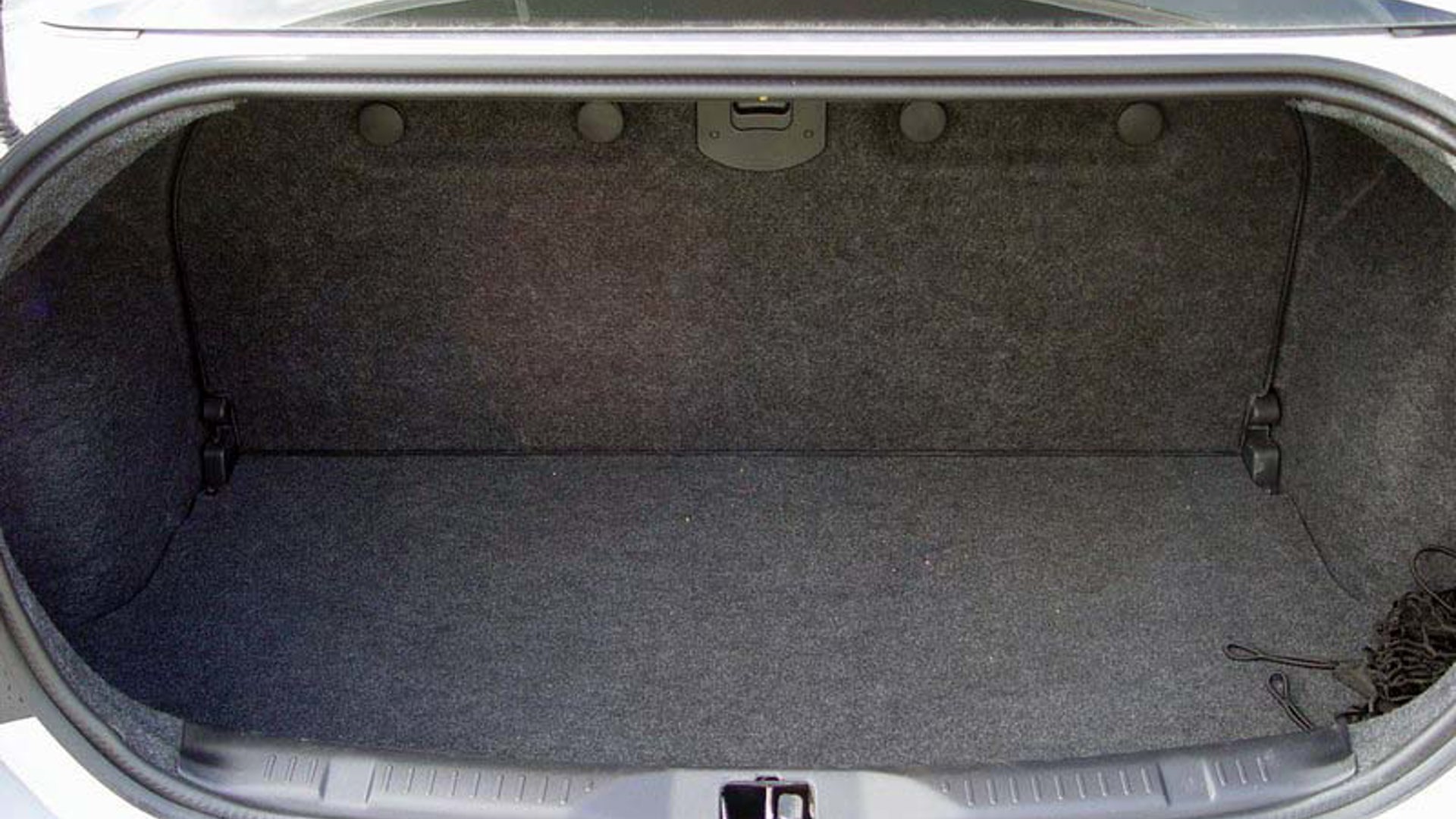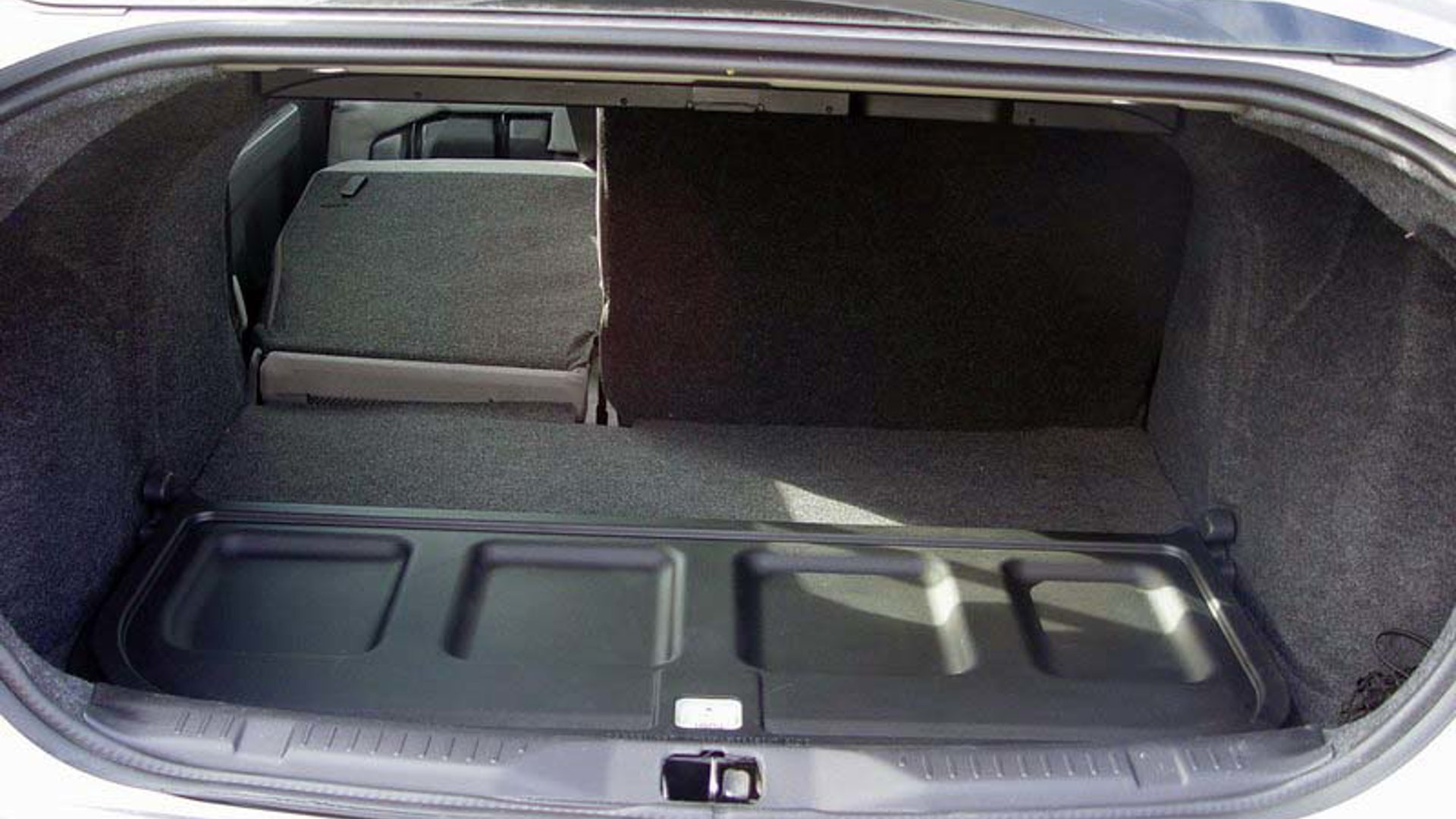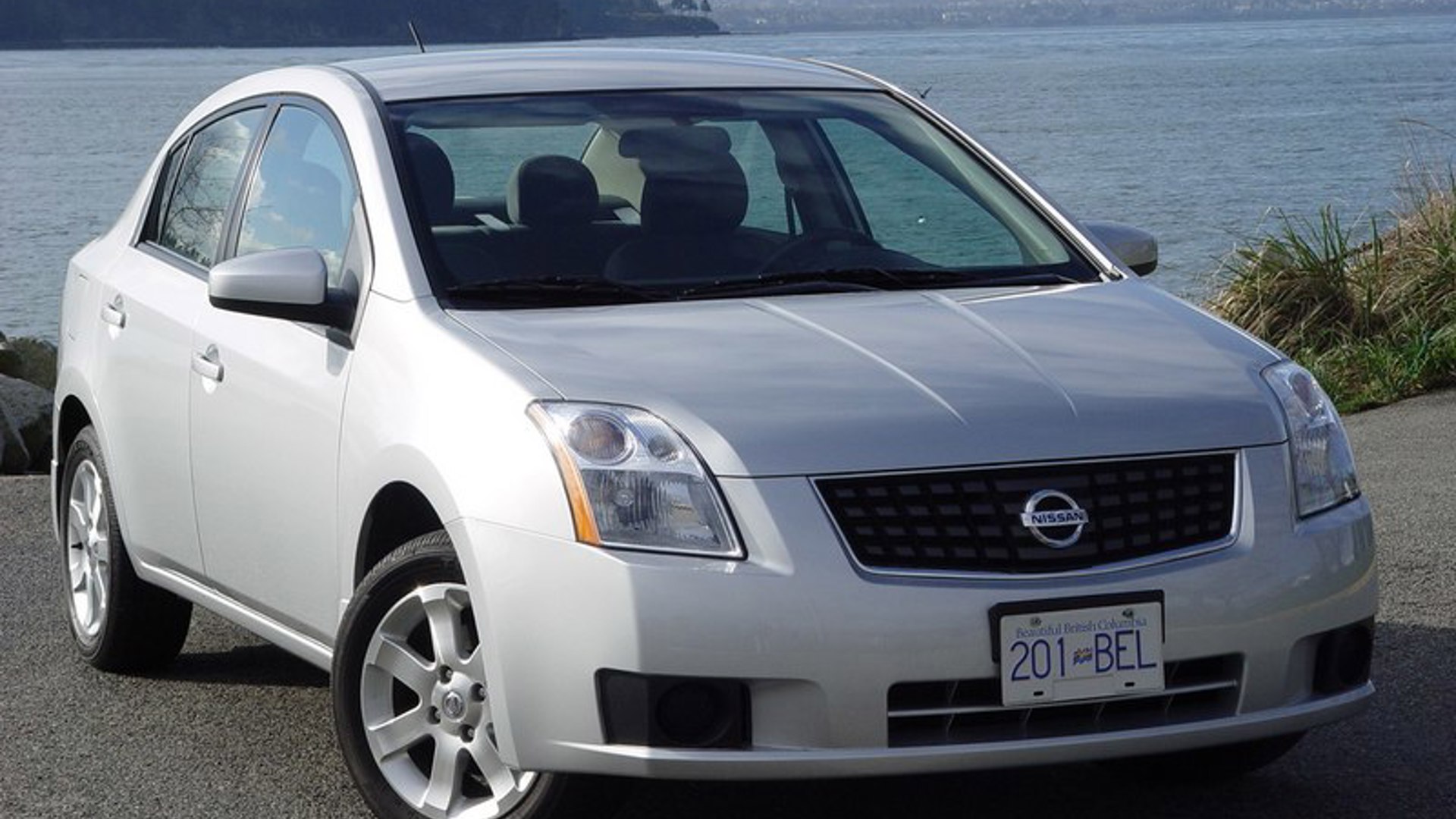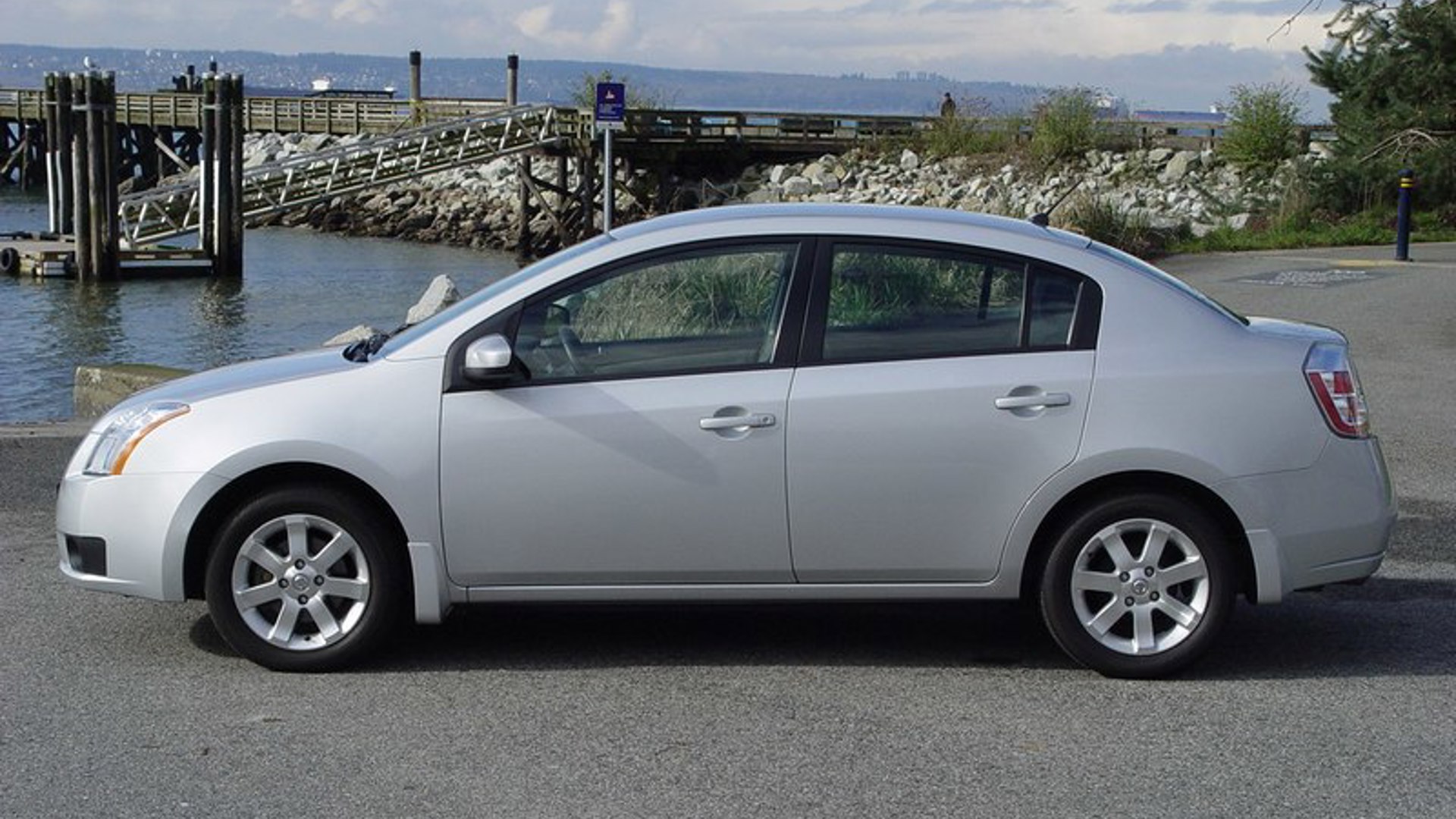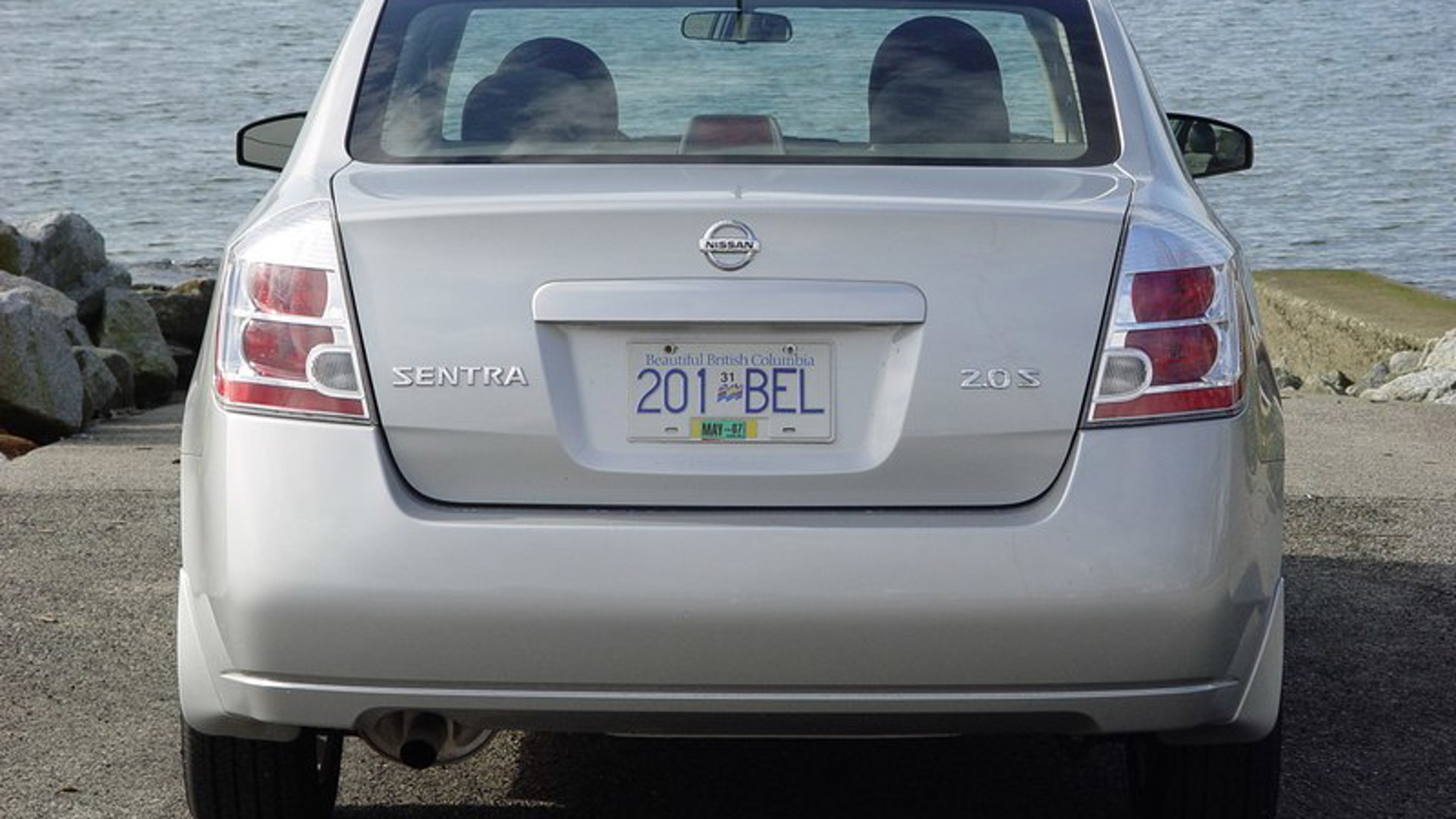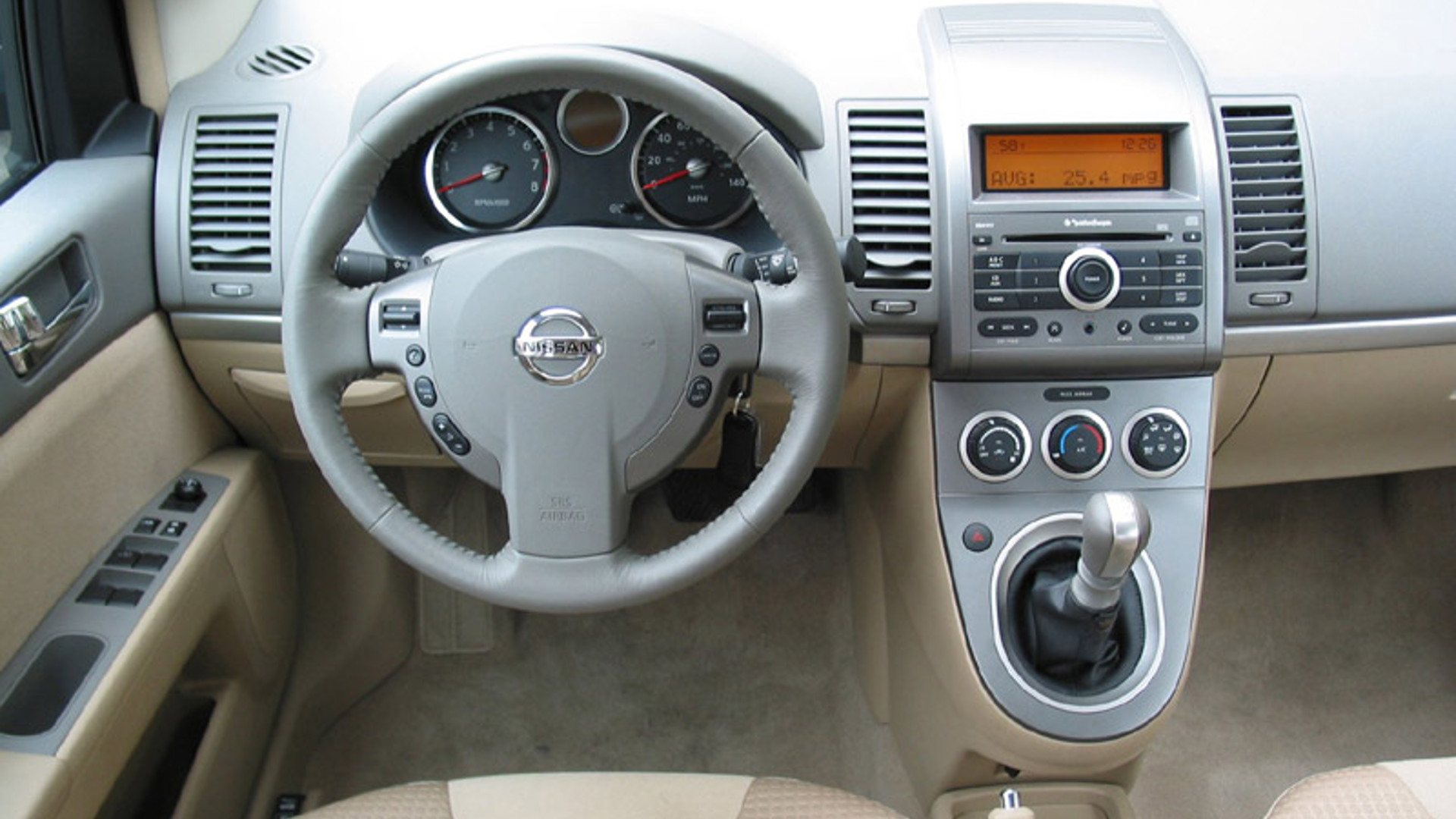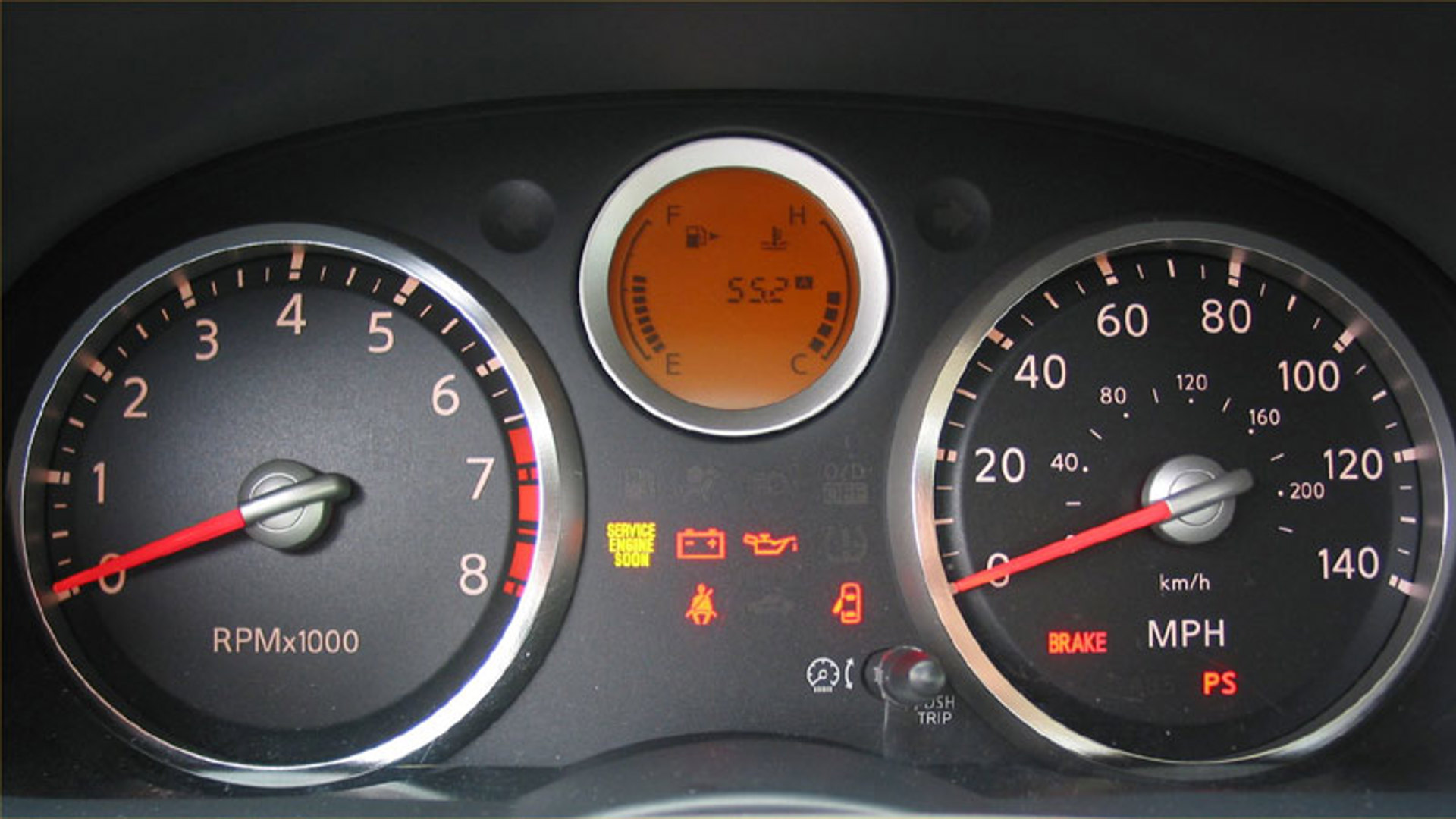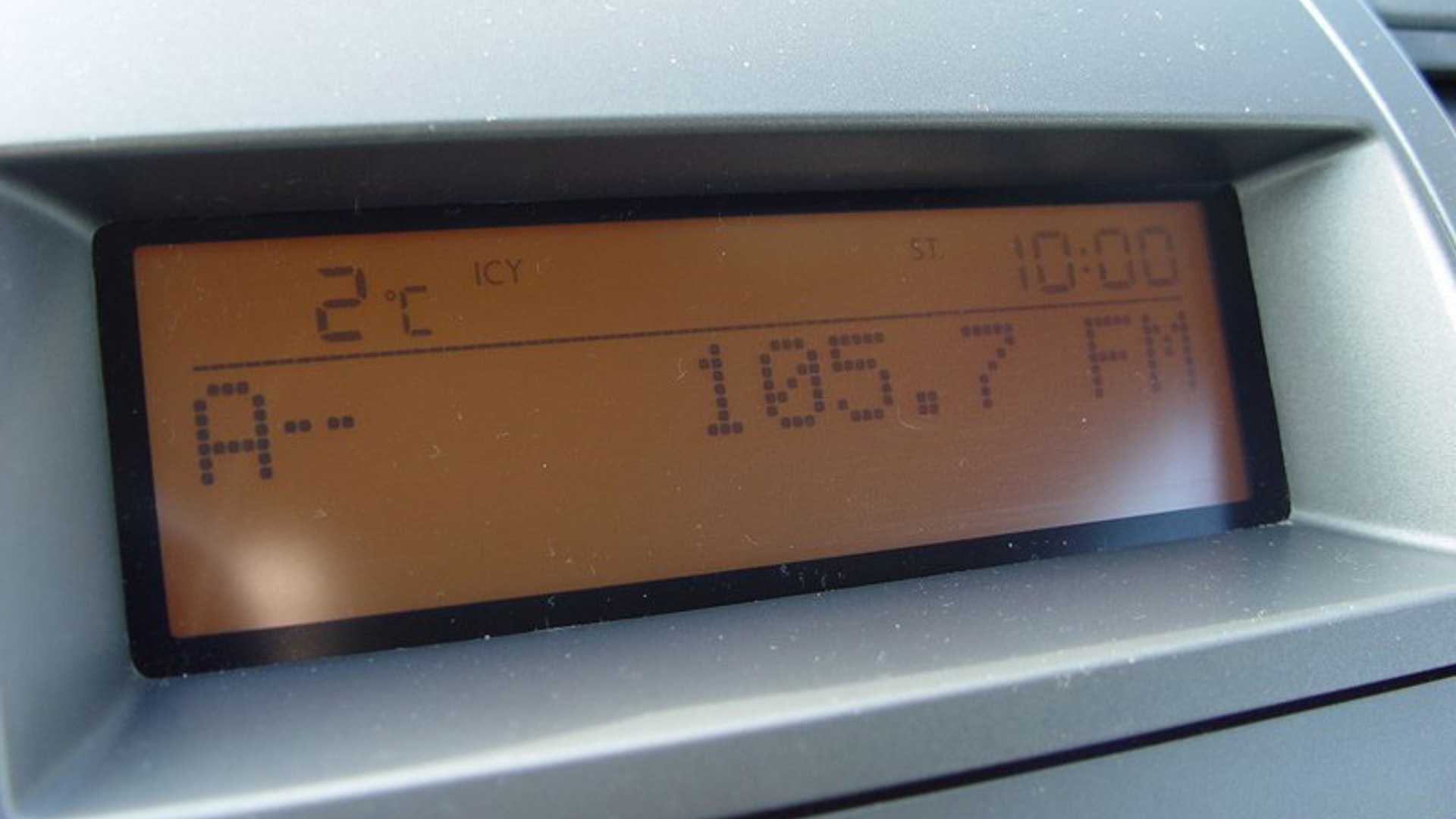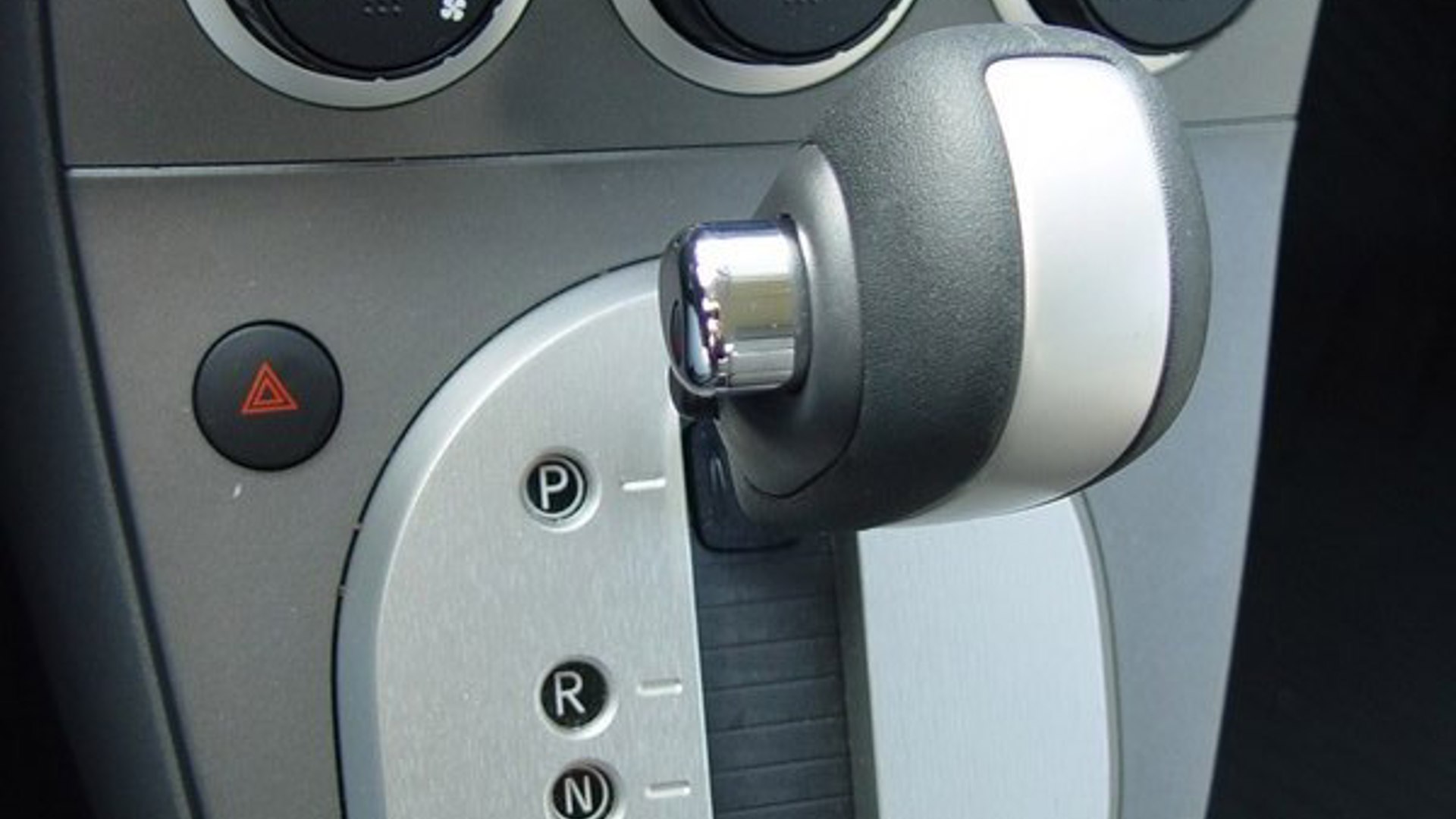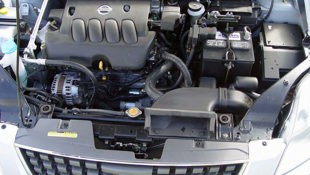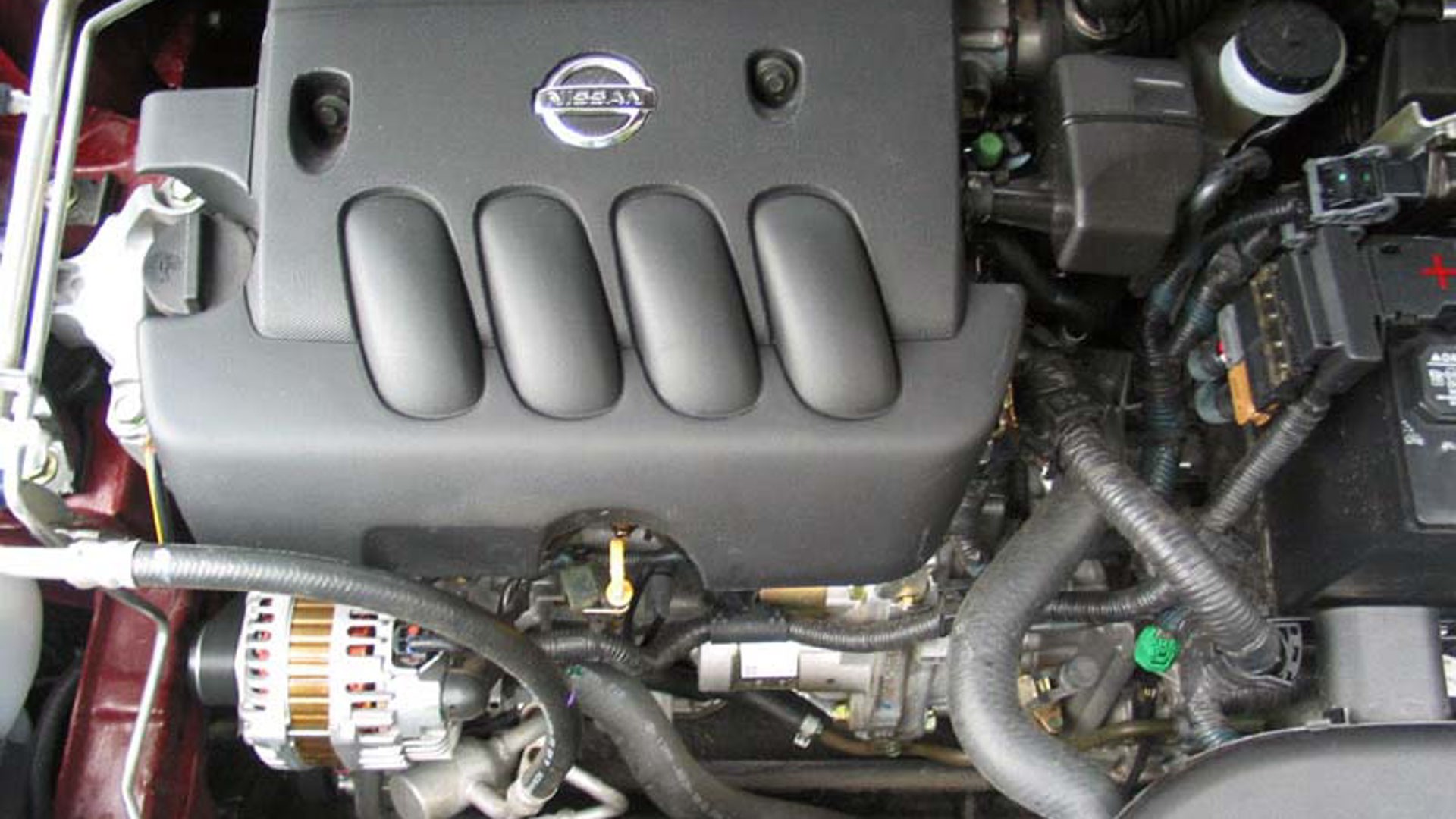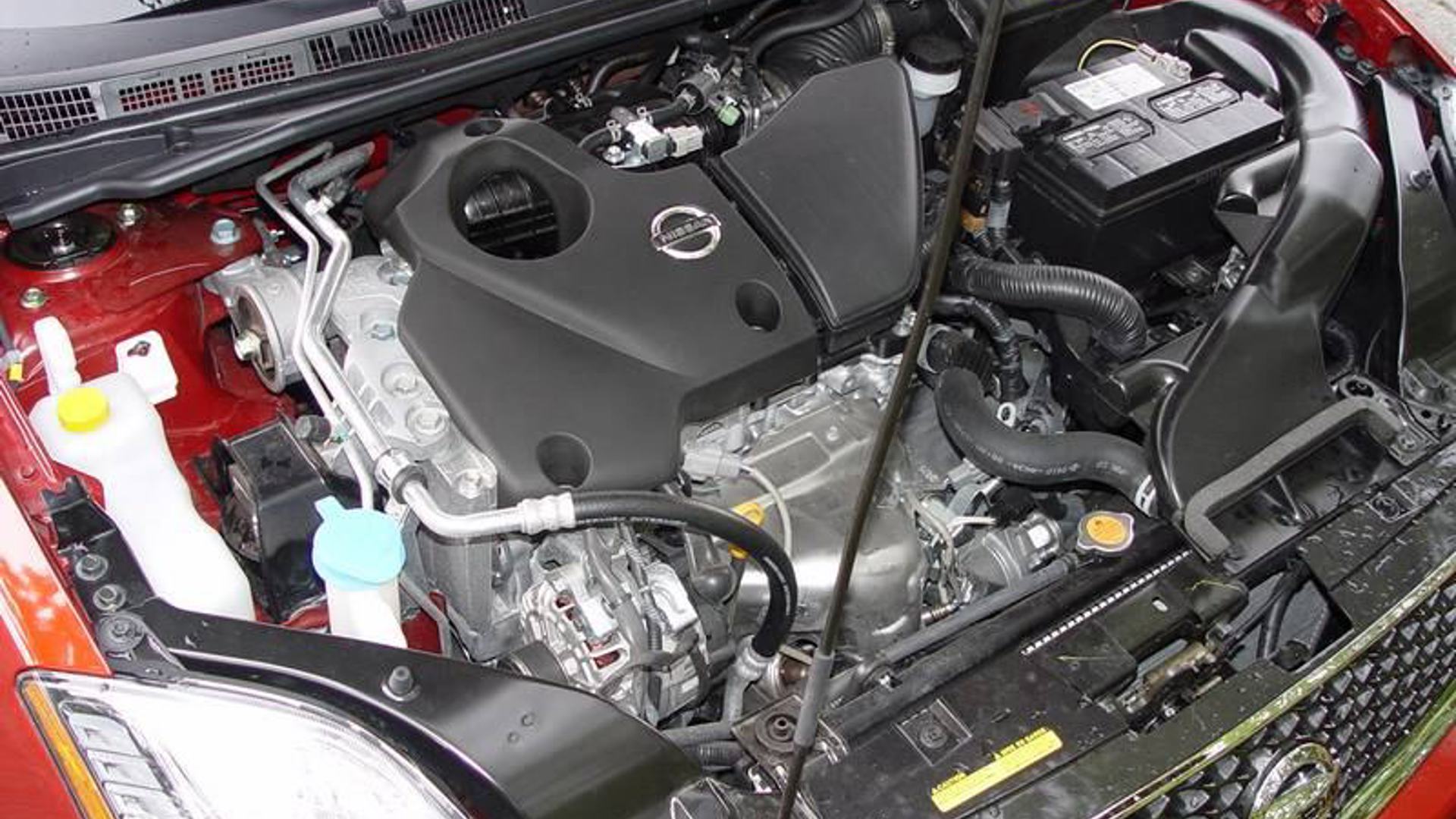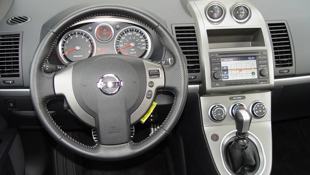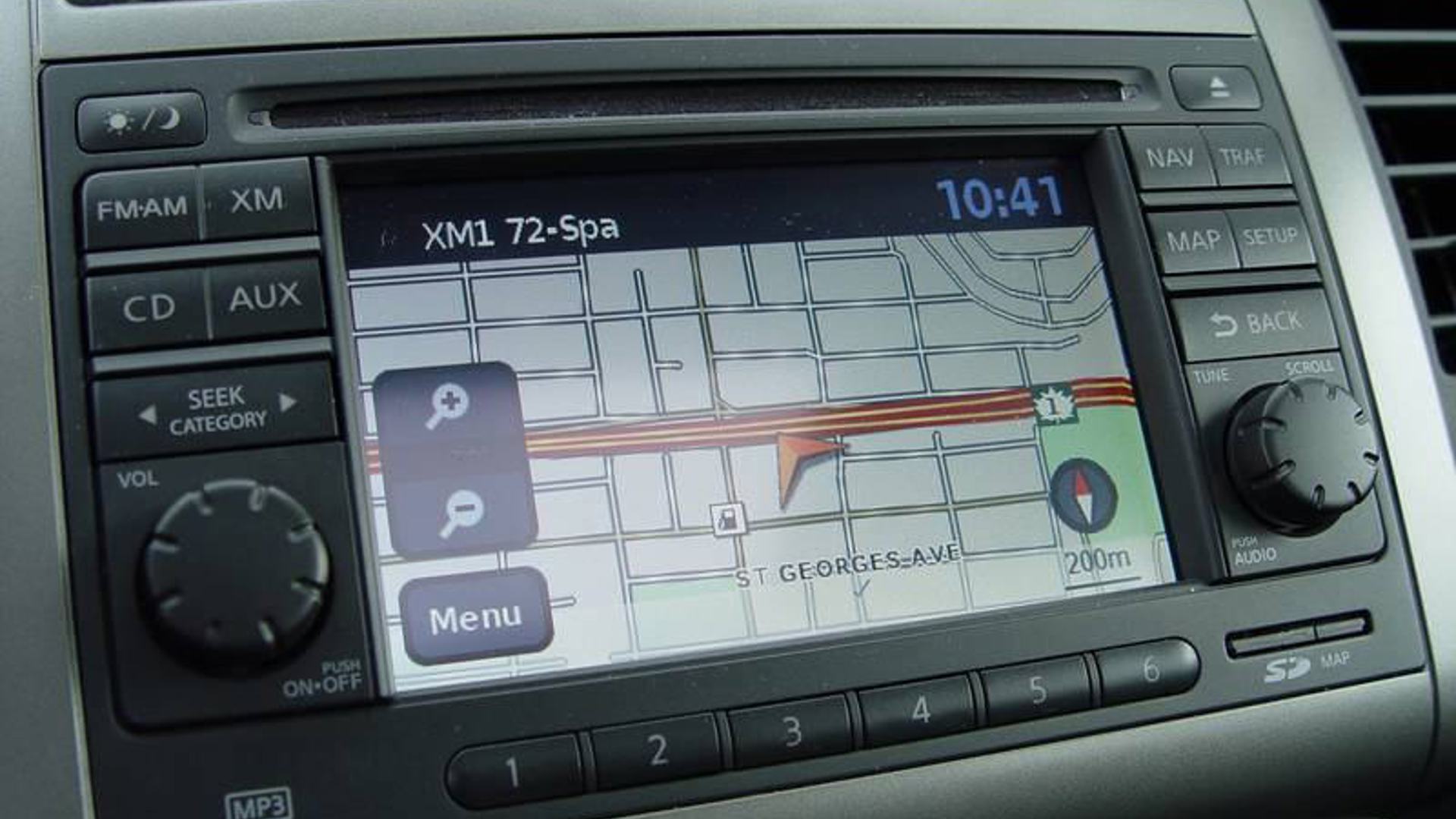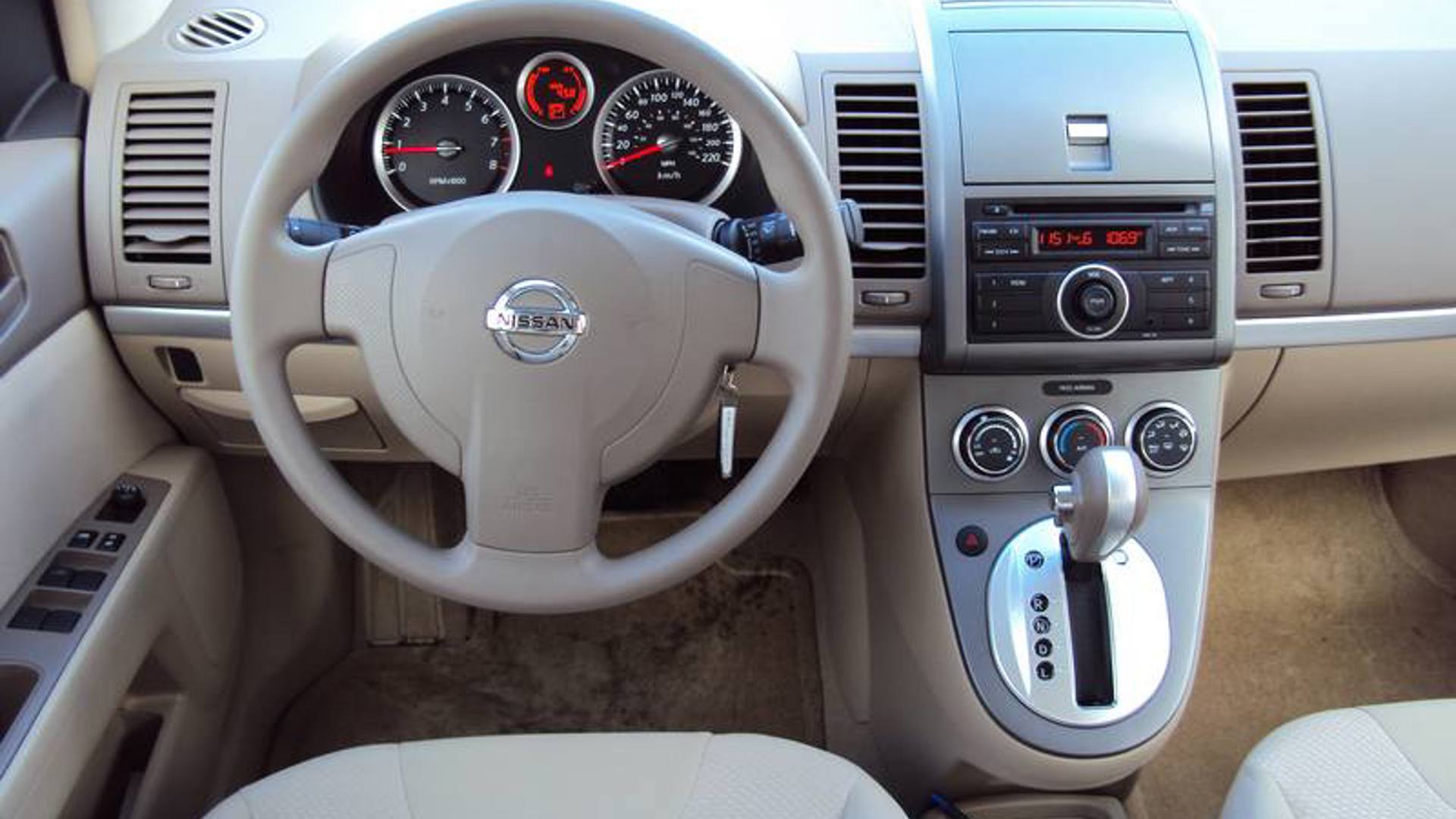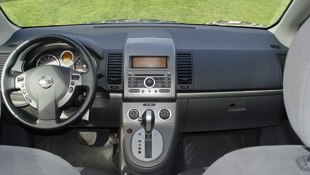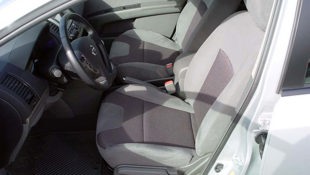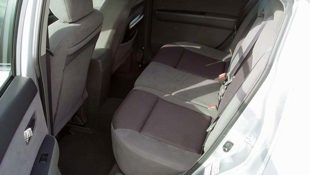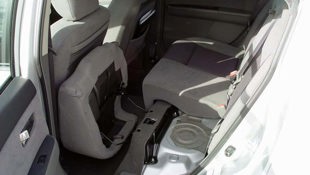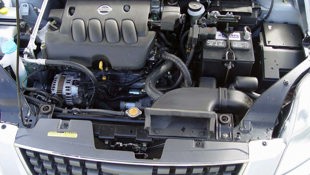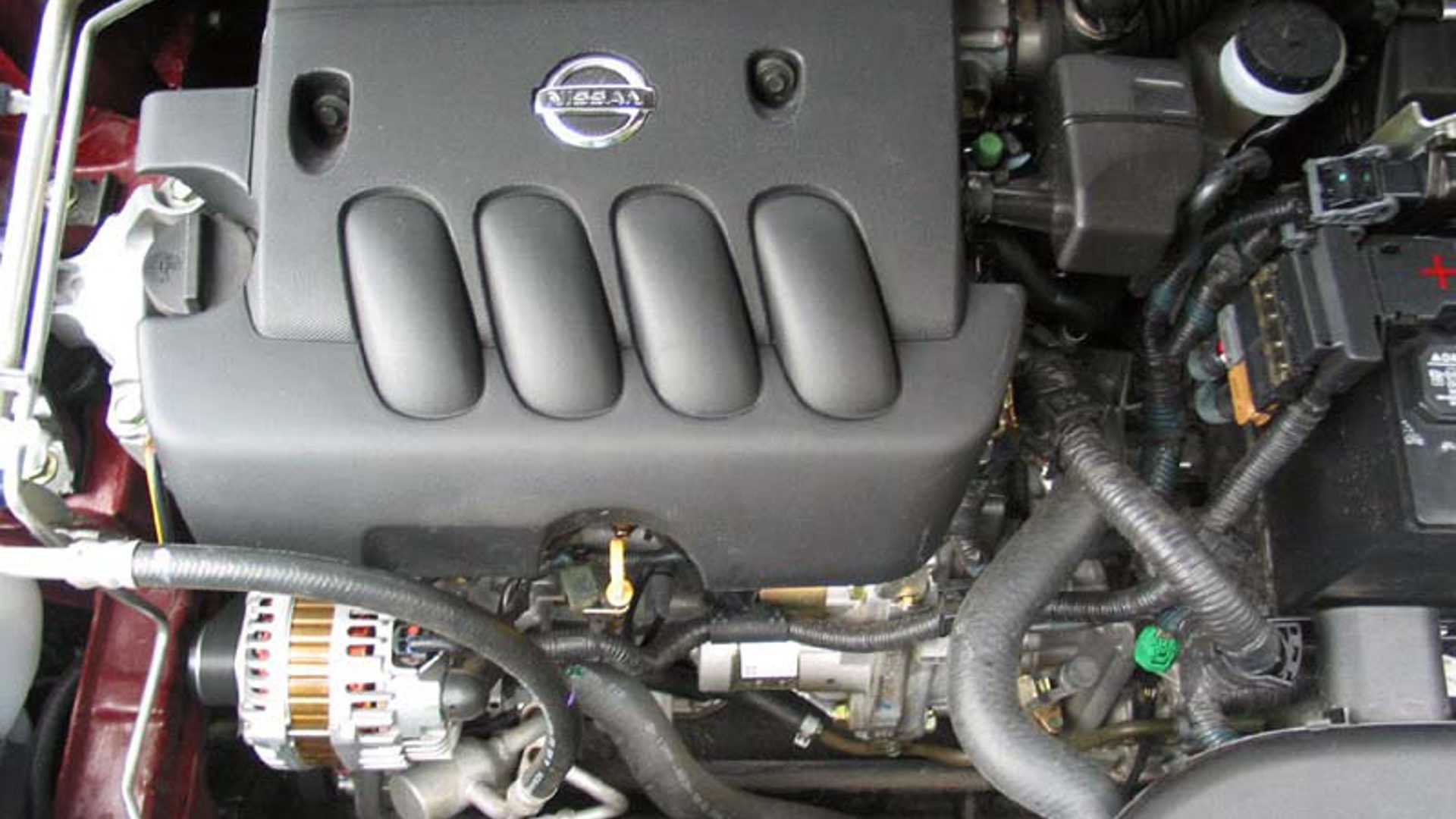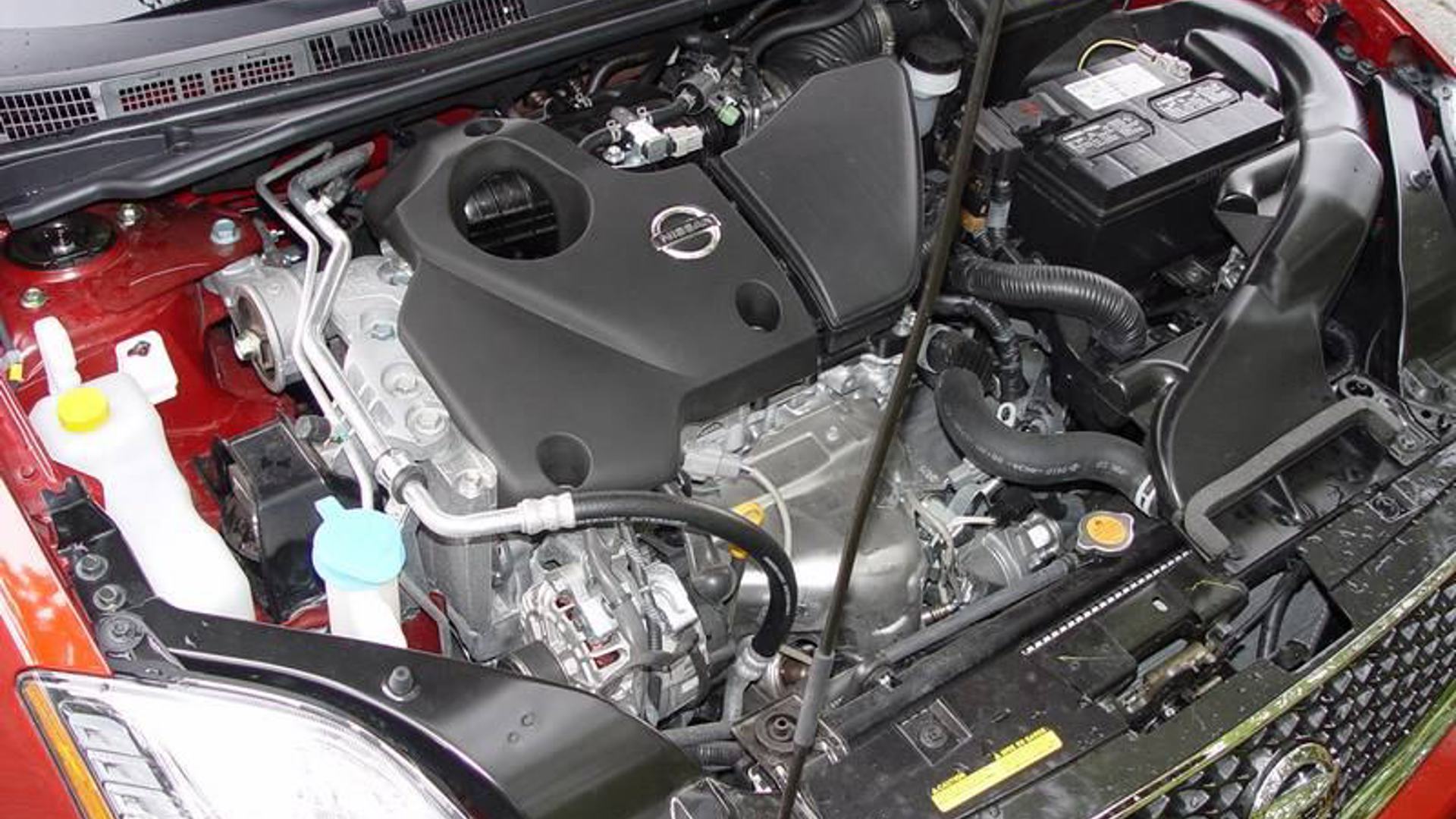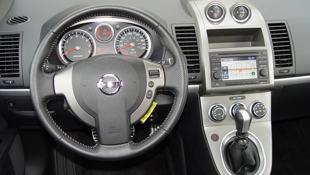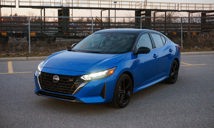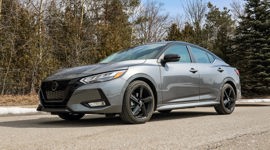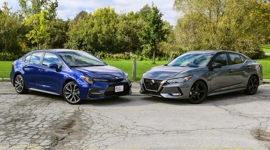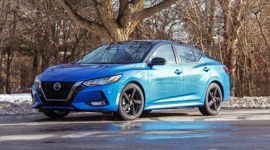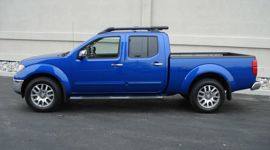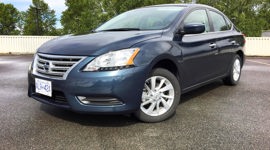Vehicle Type
More than one owner taking to the web to share their experience said that the Sentra will surprise folks who don’t like driving small cars.
Compact/Mid-size Sedan
History/Description
Available from model years 2007 to 2012 inclusive, the so-called B16 generation of Nissan Sentra was one of the most distinctively-styled compact cars on the road, and remains a popular choice with used-car shoppers across the continent.
Note that despite its compact-car positioning within the Nissan lineup, this bigger sixth-generation Sentra was technically classified as a mid-size car thanks to its passenger and cargo volumes.
Standard versions of this Sentra got a 2.0L four-cylinder engine with 140 horsepower, and a six-speed manual transmission. Nissan’s CVT gearbox was available for smooth, shift-less operation and improved fuel economy. All models were front-wheel drive.
Sentra 2.0 was the base model, while the 2.0S and 2.0SL respectively amounted to mid- and top-range models. Sporty, up-powered SE-R and SE-R Spec V models were available as well. These performance-oriented models got upgraded suspension, brakes and cosmetics to match increased power output from larger engines, and are popular with driving enthusiasts and tuner types.
On higher-end models, look for available heated mirrors, Bluetooth, leather seating, power sunroof, Rockford Fosgate audio, navigation system with back-up camera and more. Driver assistance comes in the form of anti-lock brakes, Vehicle Dynamic Control and Electronic Brakeforce Distribution – all of which work to enhance and maintain control in any situation, and on any surface.
What Owners Like
Commonly, Sentra owners report good ride quality, a relatively roomy interior and decent-sized trunk. In fact, more than one owner taking to the web to share their experience said that the Sentra will surprise folks who don’t like driving small cars. Storage space on board, as well as styling, were also highly rated.
What Owners Dislike
Dull orange instrument illumination is a big complaint here, as is the wide turning radius. Some owners wish for better fuel economy, easier-to-clean seats and better fuel economy too.
Here's a look at some Nissan Sentra owner reviews.
The Test Drive
Check your used Sentra candidate for any check engine lights or stored trouble codes with the help of a mechanic, or an OBD code reader. Pay close attention to any codes and associated sluggish-performance issues that could indicate a plugged catalytic converter or damaged pre-catalyst. Other signs of trouble here may include terrible smelling exhaust and burning oil – which can be detected visibly as blue haze from the tailpipe if it’s severe, or low oil levels.
In other Nissan models from this era, including some Sentra models, problems reported with catalytic converters could see the internal catalyst material become clogged, disintegrate, and possibly get pulled back into the engine, where it could damage cylinder walls and pistons and lead to a loss of compression or burning of oil.
Translation? Consider a pre-purchase computer system scan with an eye for catalytic converter issues, as well as a check of engine oil levels and condition to be absolutely mandatory. A compression test, especially on a higher-mileage unit, is advised too, for maximum peace of mind.
A computer system scan can also reveal potential issues with the engine knock sensor, which can cause well-documented problems with bogging and poor performance. Here’s some more reading. Should the computer scan indicate that a knock sensor is out of whack, the part is fairly easy and inexpensive to replace. Bad crankshaft position sensors can cause issues, too.
Confirm proper operation of the air conditioner, noting that failure of the system to pump cold air into the cabin can be a result of an electronic problem with the system’s computer and sensor network, and not necessarily the A/C system components themselves. Here’s some more reading about non-functional air conditioning.
Check for the presence of any “low tire pressure” warnings, which could be caused by a well-known Tire Pressure Monitoring System (TPMS) issue. Some owners say this system is far from reliable, so ignore its warnings and check tire pressures by hand if you note any problems.
A scan of owner forums reveals no abundance of worrisome problems with the available CVT transmission, though shoppers who can drive a manual are advised to go this route for the sake of long-term reliability and running costs.
Nissan has invested heavily in CVT transmission technology, and in numerous Nissan models, the CVT transmissions appear to be reliable with age. Still, a major caveat: be sure that the CVT transmission on the unit you’re considering has had all fluid changes completed on time, and by a Nissan dealer.
The reason? The CVT transmission requires a fairly precise and involved procedure to drain and fill properly, and can only be refilled with a specific type of Nissan fluid. In other model applications, problems with the transmission have been noted by owners who have had transmission fluid replaced by less-experienced lube shops, and especially when the transmission is filled with the incorrect type of fluid.
Another check should include tire and brake wear, and signs of alignment issues with the rear tires. The latter could be evidenced by uneven wear across the tire treads, and should be taken seriously. This is a well-documented issue with early copies of this generation Sentra, possibly caused by a mis-manufactured rear axle. Here’s some more reading on wonky rear wheel alignment. Note that failing to address this issue, possibly with the professional installation of axle shims, will result in increased road noise, faster tire wear, and adversely affected handling and mileage.
Finally, confirm that all door locks work properly, whether operated from the switches or keyfob. Owners of various Nissan models from this era have reported issues with door lock actuator failure, which can be pricey to fix.
The Verdict
Other than a few fairly minor problems, a used, last-generation Sentra appears to be a relatively safe bet – so long as it gets a mechanical thumbs-up ahead of your purchase after a full inspection.
Here’s a list of recalls.
Crash Test Ratings
NHTSA: 4/5 stars
IIHS: results here
